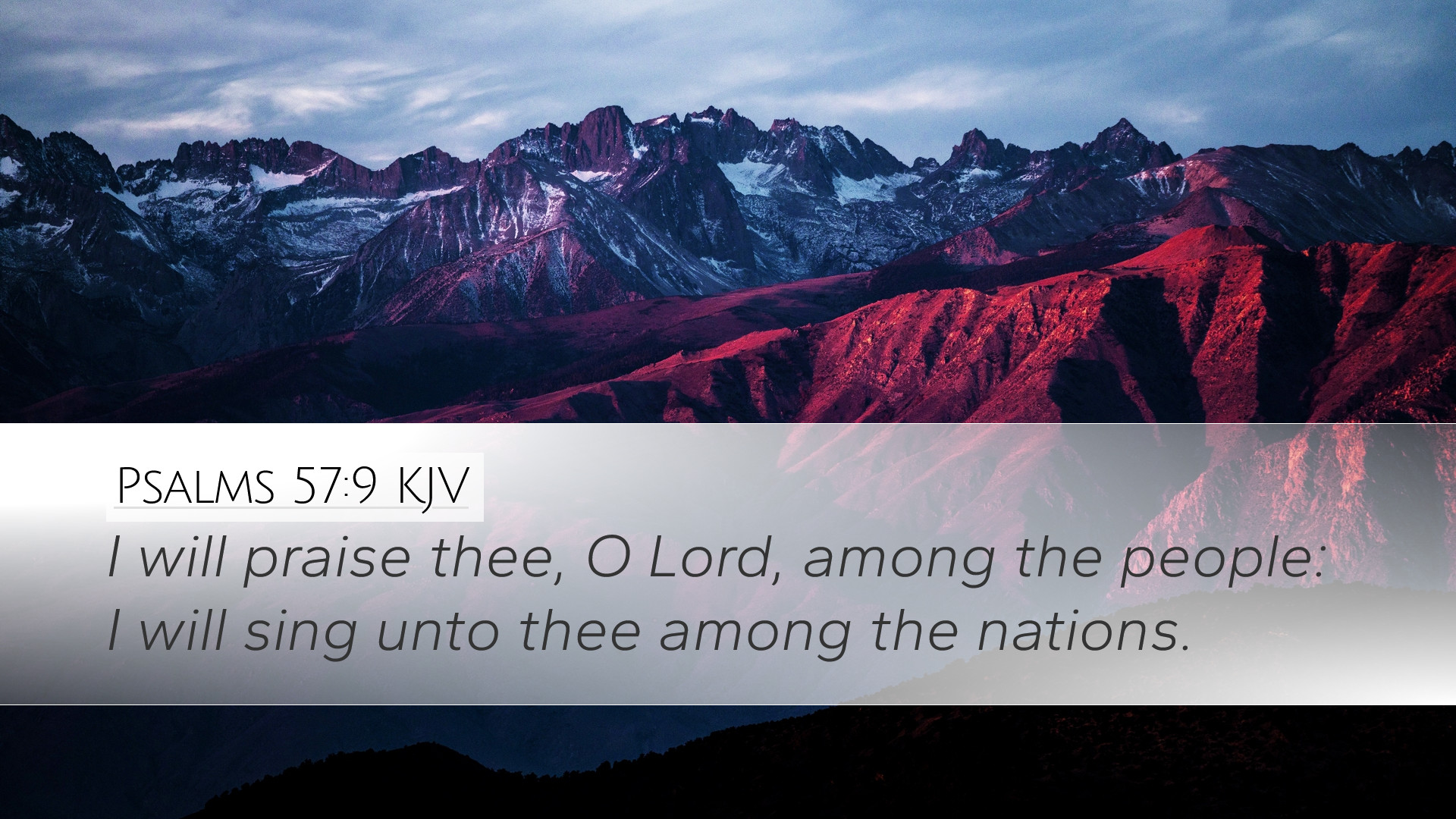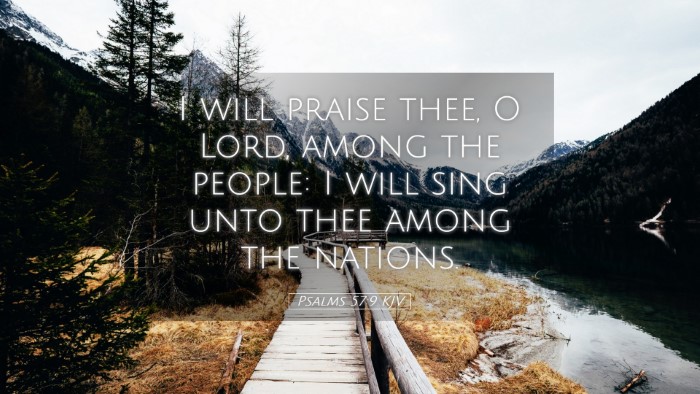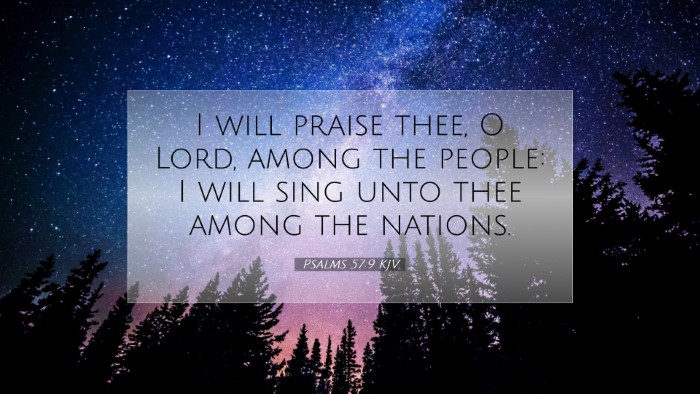Commentary on Psalms 57:9
Psalms 57:9 states: "I will praise thee, O Lord, among the people: I will sing unto thee among the nations." This verse captures a profound expression of worship, commitment, and mission in the life of the believer. In this commentary, insights from prominent public domain authors like Matthew Henry, Albert Barnes, and Adam Clarke will be synthesized to deepen the understanding of this significant text.
Context and Background
Psalm 57 is attributed to David, written during a time of distress as he fled from King Saul in the cave. The theme of this Psalm largely revolves around seeking refuge in God while affirming His greatness through praise. It reflects the tension between peril and worship, showcasing David's trust in God amidst adversity.
Analysis of Key Components
The Declaration of Praise
"I will praise thee, O Lord, among the people"
-
Matthew Henry posits that David's commitment to praise God publicly reflects a believer's duty to proclaim the goodness and mercy of God not only in private but within the community.
-
Albert Barnes emphasizes the inclusivity of David's praise, acknowledging the significance of declaring God's glory among various people, showcasing that God's mercy extends beyond ethnic and cultural boundaries.
-
Adam Clarke notes that public acknowledgment of God serves as a testimony of faith and encouragement to others, highlighting the importance of communal worship.
Commitment to Singing
"I will sing unto thee among the nations"
-
Matthew Henry interprets this verse as an expression of David's determination to worship God joyfully and unreservedly, demonstrating how true worship can transcend personal tribulation.
-
Albert Barnes remarks that the act of singing is not merely an emotional expression but a form of proclamation that brings glory to God, echoing the sentiments of praise in a form meant to reach broader audiences.
-
Adam Clarke expands upon the concept of singing as a means to engage all nations, as worship has the power to unite people under one common purpose - glorifying God.
Theological Significance
Through this verse, we encounter rich theological themes of praise, mission, and community. Each commentary provides deeper insight into the implications of public worship and the call to bring God's message to all nations.
-
Praise as a Witness: David's public declaration serves as a witness to God’s goodness, urging believers to reflect on their own practices of worship and witness in their communities.
-
Inclusivity of Worship: The references to “the nations” point to a missional aspect of worship that calls Christians today to consider their role in global evangelism.
-
Joy in Adversity: David's proclamation amidst his difficulties encourages believers to maintain their joy and commitment in worship, no matter the circumstances they face.
Practical Application
This verse provides several practical applications for today's church:
-
Encourage Public Worship: The community of believers should create spaces and opportunities for public praise that encourage both participation and proclamation.
-
Global Awareness: As seen in David’s intent to sing among nations, modern believers should cultivate awareness and engagement with global missions.
-
Personal Testimony: Believers are encouraged to share their testimonies of God's faithfulness, using personal experiences to glorify God in their communities.
Conclusion
Psalm 57:9 encapsulates the essence of worship as a public declaration of God's goodness and mercy. Insights from Matthew Henry, Albert Barnes, and Adam Clarke illuminate the importance of praise, the mission of the church, and the joy that believers can have even amid trials. This verse serves as a powerful reminder of the significant role worship plays in personal faith and community life, encouraging believers to proclaim their faith boldly among all peoples.


